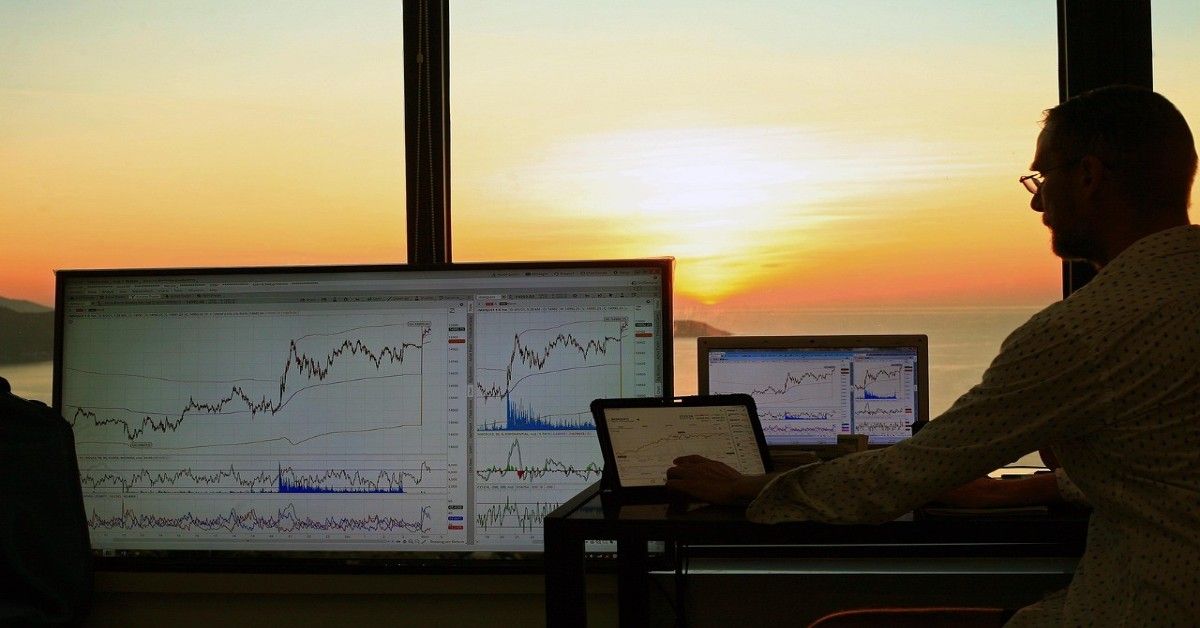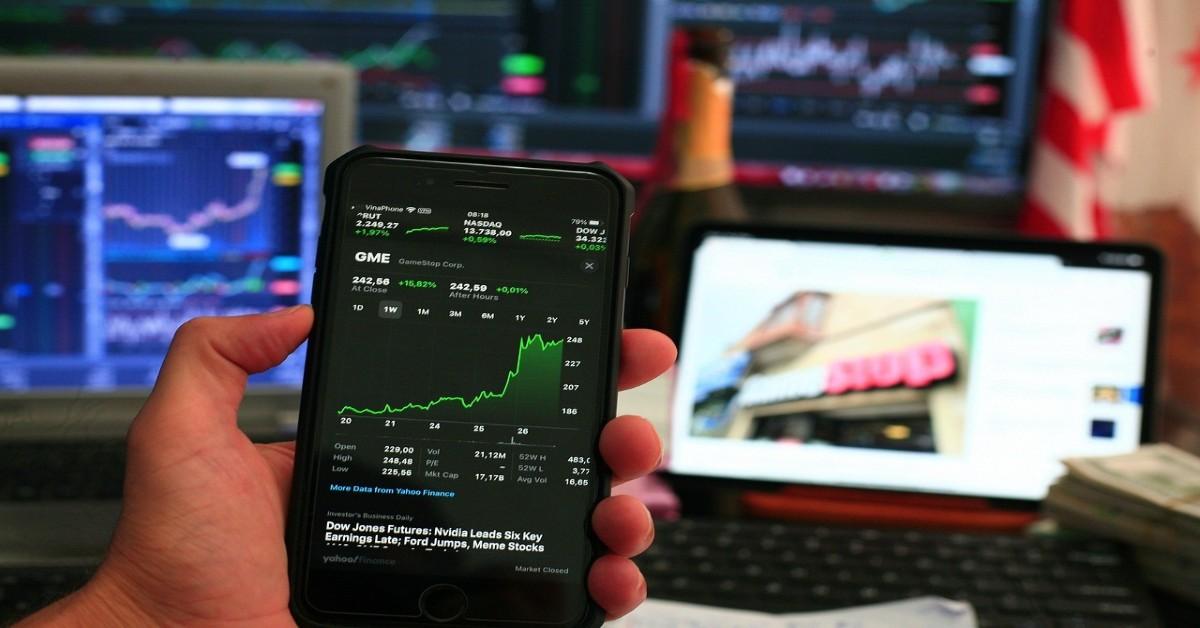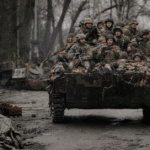Imagine waking up to headlines: “India-Pakistan Border Skirmishes Escalate.” Your first thought? “What happens to my stocks?” You’re not alone. Geopolitical crises—like the decades-long India-Pakistan conflict—send shockwaves through financial markets. But how exactly? From plunging indices to surging defense stocks, let’s decode the chaos—and what it means for your money.
What Does “Impact on Stock Market” Really Mean During a War?
War isn’t just bombs and bullets. For investors, it’s volatility, panic selling, and erratic swings. The “impact” boils down to:
Investor Sentiment: Fear drives sell-offs; the Sensex dropped 12% in 10 days during the 2019 Balakot crisis.
Sectoral Shifts: Defense stocks soar, tourism tanks.
Currency Collapse: During the 1999 Kargil War, the rupee fell 20% against the dollar.
Foreign Exodus: Global funds pull ₹50,000+ crore from Indian markets in weeks (2019 data).
In short—war reshuffles the entire financial deck.
How Did Past India-Pakistan Wars Affect Stocks?
1965 & 1971 Wars: Pre-liberalization markets were insulated. But the 1971 war saw a 15% drop in industrial output—hitting commodity stocks.
1999 Kargil Conflict:
Sensex crashed 18% in 2 months.
Bharat Dynamics (defense) shares surged 200%.
ITC (tobacco) fell 40% as taxes funded war efforts.
2008 Mumbai Attacks:
Markets closed for a day. Reopened to a 6% crash.
Hotel stocks (Taj GVK) dropped 25%; security firms (MIC Electronics) doubled.
2019 Pulwama-Balakot:
Nifty 50 swung 900 points in a week.
Sun Pharma rose 12% (panic buying); IndiGo slid 20% (fuel costs).
History’s lesson? War creates winners and losers—overnight.
Why Do Markets Panic Over India-Pakistan Tensions?
1. Oil Prices: India imports 85% of its oil. Any Mideast supply disruption (e.g., Pakistan’s allies) spikes prices. Result: Inflation fears.
2. Fiscal Deficit: War spending balloons. In 2019, India’s defense budget jumped 15%—squeezing infrastructure funds.
3. Global Investors: They flee emerging markets first. $4 billion exited Indian equities in Q1 2020 during border clashes.
4. Trade Halts: India-Pakistan trade dropped 92% since 2019. Companies like Maruti (exports to Pakistan) took hits.

“The Market Hates Uncertainty”: Expert Reactions
“Investors dump equities and rush to gold, bonds—anything stable.” — Neelkanth Mishra, Credit Suisse.
“Defense stocks are speculative. Don’t chase short-term spikes.” — Raamdeo Agrawal, Motilal Oswal.
“A full-scale war could erase $1 trillion from India’s market cap.” — Bloomberg Economics, 2023 report.
Retail investors? Panicked. During the 2019 crisis, Zerodha saw a 300% spike in sell orders.
7 Shocking Ways Your Portfolio Could Crash
Banking Bloodbath: War loans + defaults = PNB, SBI stocks nosedive.
Tourism Wipeout: MakeMyTrip, Indian Hotels slump as travel advisories flood.
Tech Freeze: TCS, Infosys lose global clients wary of India’s stability.
Agriculture Collapse: Fertilizer shortages (imports via Karachi halt)—Coromandel Intl. sinks.
Real Estate Bust: Luxury projects stall; DLF drops 30%.
Currency Crisis: Rupee hits ₹100/$—import-heavy Reliance suffers.
Small-Cap Carnage: Retail investors flee; Penny stocks lose 90% liquidity.
Could Defense Stocks Save Your Portfolio?
Maybe—but with caveats. During conflicts:
Bharat Electronics rose 120% (2019).
Midhani (specialty metals) gained 85% (Kargil War).
But post-war? Most crash. BEML fell 60% after Kargil. “Defense is a tactical play, not long-term,” warns Nirmal Bang Securities.
Black Markets & Inflation: The Silent Portfolio Killer
During the 1999 Kargil War, India’s black market for dollars exploded—premiums hit ₹60 per dollar over official rates. Why? Panic-driven hoarding. Today, a similar crisis could:
Fuel Inflation: Essential goods prices surge as supply chains break. In 2019, onion prices hit ₹200/kg due to transport halts.
Shadow Economy Boom: Gold smuggling rises—40% of UAE’s gold exports to India are illegal during crises (World Gold Council).
“War doesn’t just destroy lives—it distorts entire economies,” warns former RBI Governor Raghuram Rajan.
The Psychological Warfare: How Fear Drives Crashes
Humans are irrational. Behavioral studies show:
Herd Mentality: During the 2019 Balakot strikes, 73% of retail investors sold stocks within 48 hours—even if their holdings were unaffected.
Anchoring Bias: Investors fixate on pre-war stock prices (e.g., “I bought Infosys at ₹1,500!”), refusing to sell at losses.
Recency Bias: After the 2008 Mumbai attacks, investors avoided hotel stocks for 5+ years—despite sector recovery.
“Fear is the real market manipulator,” says behavioral economist Dan Ariely.
SME Carnage: Why Small Businesses Face Extinction
While giants like Reliance weather storms, SMEs collapse:
Credit Crunch: During 2019 tensions, MSME loan approvals dropped 55% (TransUnion CIBIL).
Supply Chains: Pakistan-based raw materials (e.g., surgical tools for Gujarat’s manufacturers) halted—12,000 units shut in 3 months.
Export Freeze: Kashmir’s saffron growers lost ₹1,200 crore in 2019 EU orders due to conflict labels.
“War is a luxury small businesses can’t afford,” laments Anil Bhardwaj, Secretary-General, FISME.
The Domino Effect: Global Tech & Pharma at Risk
India’s $245 billion IT/Pharma sectors face collateral damage:
Pharma: 40% of US generic drugs rely on Indian APIs. War disrupts production—Pfizer, Novartis stocks dip on supply fears.
IT Outsourcing: Clients demand “war clauses” in contracts. Infosys lost a $500M deal in 2020 over geopolitical risk.
Chip Reliance: 65% of global chip designs are done in India. A war-triggered brain drain? Intel, NVIDIA shares wobble.

Post-War Rebound: Myths vs. Reality
“Buy the dip” sounds smart, but history warns:
1999 Kargil: Markets took 18 months to recover peaks. Early buyers in Zee Telefilms doubled money—VSNL investors lost 70%.
2019 Balakot: Nifty reclaimed highs in 6 months, but Yes Bank (-90%) never recovered.
Sectoral Splits: Defense stocks fall 50% post-war; pharma/IT lead rebounds.
“Recovery isn’t a tide—it’s a tornado. Some fly, others drown,” says veteran investor Ramesh Damani.
How Global Markets React to India-Pakistan Wars
Oil Spike: Brent crude jumps $15/barrel (1999, 2019).
US Arms Stocks: Lockheed Martin, Raytheon rise 7-10% on supply hopes.
China’s Shadow: Sino-Pak ties may trigger Taiwan tensions—TSMC shares dip.
Gold Glitters: Prices in India hit ₹65,000/10g during 2019 crisis.
The Worst-Case Scenario: Nuclear Threat
A 2023 Stanford study modeled a limited India-Pakistan nuclear exchange:
Global Markets crash 30-50%.
India’s GDP contracts 35% in Year 1.
Pharma Stocks (vaccine demand) spike—Dr. Reddy’s, Cipla rally.
Thankfully, experts call this “low probability.” But markets price even 1% risks.
5 Survival Strategies for Investors
Shift to Defensive Stocks: ITC, Nestlé (low volatility).
Gold ETFs: HDFC Gold ETF surged 22% in 2019.
Debt Funds: ICICI Pru Bond funds stay stable.
Dollar Assets: Invest in US ETFs via platforms like Vested.
Hedge with Options: Protect your portfolio for 2-5% fees.
“Don’t try to time the market—prepare,” says Radhika Gupta, Edelweiss MF.
FAQ: 15 Questions Every Investor Is Asking
Should I sell stocks if war breaks out?
Not all—hold defensive sectors (FMCG, pharma).Which stocks go up during war?
Defense (BEL, HAL), pharmaceuticals, utilities.How does war affect mutual funds?
Equity funds drop; gold/debt funds rise.Is gold safer than stocks in war?
Yes, but avoid physical gold—liquidity issues.Will the rupee collapse?
Likely. Park funds in dollar-denominated assets.What happened to real estate in past wars?
Prices dropped 20-30% in conflict zones (e.g., Jammu, 1999).Are SIPs safe during war?
Continue—long-term averages smooth volatility.Can war cause a recession?
Prolonged conflict? Yes. 1999 saw 2% GDP slowdown.Which sectors are worst hit?
Aviation, tourism, luxury goods, autos.Do IPOs get postponed?
Yes. Zomato delayed its 2019 IPO during tensions.How do bond markets react?
Govt bonds dip (fiscal fears); corporate bonds crash.Should I buy defense stocks now?
Only if you’ll exit post-conflict. Most overcorrect.Will insurance premiums rise?
Yes. ICICI Lombard hiked rates 15% in 2019.Can I sue my broker for war losses?
No—war is a “force majeure” event.How does war affect small businesses?
Credit dries up; supply chains break.Do all stocks recover post-war?
No—sector splits occur.Does war cause inflation?
Yes, via supply shocks and black markets.
War-Proof Your Portfolio: Next Steps
Geopolitical risks won’t vanish. Smart moves:
Diversify Globally: Use platforms like Trade View to access US/Europe ETFs.
Stay Liquid: Keep 20% cash for buying dips.
Ignore Noise: Tune out TV debates; follow RBI/SEBI alerts.
Final Word
War’s impact on markets isn’t just about numbers—it’s about panic, greed, and human folly. While India-Pakistan tensions loom, remember: The Sensex survived Kargil, 26/11, and Balakot. Prepare, don’t predict. And if you’re overwhelmed? Give visit to Gemscor.














